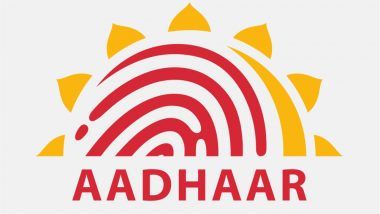New Delhi, May 17: Even as the government promotes Aadhaar as an enabler to ensure that food and other subsidies reach the poor, a new report on Thursday said that a large number of people do not get food ration under the Public Distribution System (PDS) due to factors related to the biometric identification system.
State capacity also has a bearing on the functioning of PDS, with wide variation between Rajasthan and Andhra Pradesh, said the report by IDinsight, a global development analytics firm working across India.
Expressing concern over the privacy of their data, almost all of the respondents (96 per cent) said it was important to know what the government would do with their Aadhaar data.
The "State of Aadhaar Report 2017-18" is based on the largest household survey since Aadhaar's inception, covering 2,947 rural households in 21 districts across Andhra Pradesh, Rajasthan and West Bengal.
Overall monthly exclusion from PDS in Rajasthan is 9.9 per cent, whereas it is 1.1 per cent in Andhra Pradesh.
Of this, Aadhaar-related factors contribute 2.2 per cent and 0.8 per cent respectively, showed the results of the survey conducted between November 2017 and February 2018.
"PDS exclusion due to the failure of the local administration, though small, should be taken very seriously by the concerned agencies," Ajay Bhushan Pandey, CEO of the Unique Identification Authority of India (UIDAI) which is mandated to issue Aadhaar, said in a statement.
"They should ensure that not a single beneficiary is denied. The Aadhaar Act and Government instructions provide for alternate means of identification for genuine beneficiaries who encounter problems in authentication," he added.
Despite this, the report found that a majority of PDS recipients prefer Aadhaar-based PDS delivery in both states, as they perceive biometric authentication prevents identity fraud.
At the same time, 87 per cent of respondents approved of mandatory linking of Aadhaar to programmes like PDS, according to the report.
"The goal of the State of Aadhaar Report is to catalyse the Aadhaar debate and policymaking to be more data-driven," said Ronald Abraham, Partner, IDinsight.
The report found higher coverage of Aadhaar than voter IDs. It said that 8.8 per cent of Aadhaar-holders reported errors in their name, age, address, or other information on their Aadhaar card.
Compared to voter IDs, the error-rate in Aadhaar was 1.5 times higher, the report said. "Issues such as protecting privacy and eliminating exclusion are serious and require rigorous evidence to carefully unpack and address," Abraham added.
(The above story first appeared on LatestLY on May 17, 2018 05:00 PM IST. For more news and updates on politics, world, sports, entertainment and lifestyle, log on to our website latestly.com).













 Quickly
Quickly


